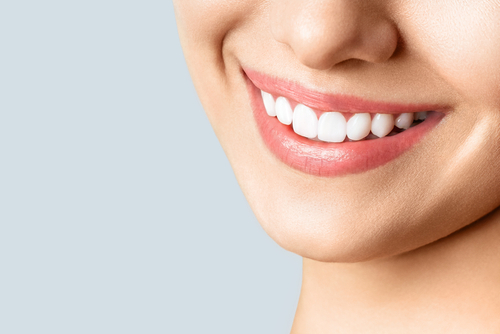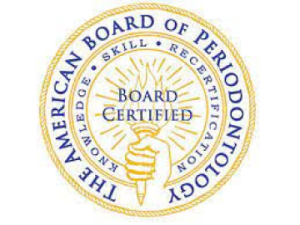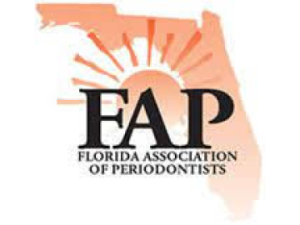Welcome to Palm Beach Periodontics, specializing in top-notch gum health treatment. Good gum health is essential for overall dental well-being. We focus on effective treatment through proper oral hygiene, regular check-ups, and a healthy diet. Brushing twice daily, flossing, and using mouthwash are vital for preventing gum disease. Regular visits help us catch early gum issues. A balanced diet rich in fruits, vegetables, and whole grains supports gum health. Avoid sugary snacks and drinks for healthier gums, and consider incorporating platelet-rich plasma or fibrin therapy, a cutting-edge type of therapy that can boost healing and shorten recovery times for gum treatments.
Five Key Steps to Achieve Optimal Gum Health
Maintaining optimal gum health is essential for overall oral health. There are five key steps you can take to achieve healthy gums and prevent gum disease. These steps include understanding the importance of regular professional cleanings, practicing proper brushing and flossing techniques, choosing the right oral hygiene products, implementing a balanced diet, and knowing when to seek professional help. By following these steps, you can ensure that your gums stay healthy and prevent future oral health problems. The best way to make sure gums stay healthy is with a good oral health routine, which takes just three simple steps to keep gums and teeth clean and help prevent gum disease.
Step 1: Understanding the Importance of Regular Professional Cleanings
Regular professional cleanings by a dental hygienist are crucial for maintaining optimal gum health. These cleanings go beyond regular brushing and flossing to remove plaque and tartar buildup that cannot be easily removed at home. Here are some key points to understand about the importance of regular professional cleanings:
- Professional cleanings can help prevent and treat periodontal disease, a common gum infection that can lead to tooth loss if left untreated.
- During a professional cleaning, a dental hygienist will use specialized tools to remove plaque and tartar from your teeth and along the gum line.
- Professional cleanings can also include a procedure called root planing, which smooths out the root surfaces of the teeth to prevent further plaque buildup.
- Regular professional cleanings can help detect early signs of gum disease and allow for prompt treatment to prevent further damage.
By scheduling regular professional cleanings, you can ensure that your gums stay healthy and prevent the risk of gum disease and other oral health problems.
Step 2: The Role of Proper Brushing and Flossing Techniques
Proper brushing and flossing techniques play a crucial role in maintaining healthy gums. Here are some key points to understand about the role of proper brushing and flossing techniques:
- Brushing your teeth twice a day with a soft-bristled toothbrush and fluoride toothpaste is essential for removing plaque and preventing gum disease.
- Use a gentle circular motion, and brush all surfaces of your teeth, including along the gum line.
- Flossing at least once daily is crucial for removing plaque and food particles from between the teeth and along the gum line, where a toothbrush cannot reach.
- When flossing, use a gentle sawing motion and curve the floss around each tooth to ensure thorough cleaning.
- Proper brushing and flossing techniques help prevent tooth decay by removing plaque, which can lead to cavities and gum inflammation.
Step 3: Choosing the Right Oral Hygiene Products
Choosing the proper oral hygiene products is crucial for maintaining optimal gum health. Here are some key points to consider when selecting oral hygiene products:
- Toothbrush: Use a soft-bristled toothbrush that is gentle on the gums and teeth. Replace your toothbrush every three to four months or sooner if the bristles become frayed.
- Toothpaste: Look for a fluoride toothpaste that helps strengthen the enamel and prevent tooth decay. Consider using a toothpaste specifically formulated for gum health if you have gum disease or other oral health conditions.
- Mouthwash: Choose an antibacterial mouthwash that helps kill bacteria, freshens breath, and promotes gum health. Look for alcohol-free mouthwashes to avoid drying out the mouth.
- Electric toothbrush: Consider using an electric toothbrush, which can be more effective at removing plaque and improving gum health compared to manual toothbrushes. Electric toothbrushes often have built-in timers and different brushing modes for optimal cleaning.
Step 4: Implementing a Balanced Diet for Gum Health
Implementing a balanced diet is essential for maintaining optimal gum health. Here are some key points to consider when it comes to diet and gum health:
- A balanced diet that is rich in nutrients, including vitamins and minerals, can promote gum health and prevent gum disease.
- Avoid excessive sugary and acidic foods and drinks, as they can contribute to tooth decay and gum inflammation.
- Include foods that are high in fiber, such as fruits and vegetables, as they can help stimulate saliva production and promote healthy gums.
- Foods that are rich in antioxidants, such as berries and leafy greens, can help protect gum tissue from damage caused by free radicals.
- Maintaining stable blood sugar levels is also essential for gum health, as uncontrolled diabetes can increase the risk of gum disease and other oral health problems.
Step 5: Recognizing When to Seek Professional Help
Recognizing when to seek professional help is crucial for maintaining optimal gum health. Here are some key points to consider when it comes to recognizing the need for professional help:
- Pay attention to the early warning signs of gum disease, such as bad breath, gum inflammation, and bleeding gums.
- If you experience any of these symptoms, it is essential to schedule a thorough evaluation with a dentist or periodontist.
- A dental professional, such as the team at Palm Beach Periodontics, can use a periodontal probe to measure the pockets around your teeth and determine the stage of gum disease.
- Depending on the severity of your gum disease, treatment options may include professional cleanings, scaling and root planing, or surgical interventions.
- Regular dental check-ups and professional cleanings are essential for monitoring gum health and addressing potential issues early on.
By recognizing the need for professional help and seeking timely treatment, you can prevent the progression of gum disease and maintain healthy gums.
Schedule Your Consultation with Palm Beach Periodontics
Promptly scheduling an evaluation with a dentist or periodontist at Palm Beach Periodontics, which has convenient locations in Palm Beach and Boynton Beach, Florida, is crucial for maintaining optimal gum health. Gum health plays a significant role in your overall well-being, as it can impact not only your oral health but also your systemic health. By prioritizing regular check-ups and treatments with a dental professional, you can take proactive steps to prevent gum disease and address any issues early on. Whether you are due for a routine cleaning or have concerns about the health of your gums, scheduling an appointment today can help you take control of your oral health journey. Remember, prevention and early intervention are crucial to achieving a healthy and beautiful smile for years to come.
Frequently Asked Questions
How Often Should I Visit a Periodontist?
It is recommended to visit a periodontist or a gum specialist for regular check-ups and professional cleanings at least once every six months. However, the frequency of visits may vary depending on individual needs, such as gum disease, treatment plans, and overall oral health. People with severe gum disease or underlying health problems may need more frequent visits to a periodontist to ensure proper management and prevention of further complications, which may require the use of local anesthesia for specific procedures.
Are Electric Toothbrushes More Effective for Gum Health?
Electric toothbrushes can be more effective for gum health than manual toothbrushes. Electric toothbrushes often have rotating or vibrating bristles that can remove more plaque and improve gum health. They can also be helpful for individuals with limited manual dexterity or those who have difficulty using a manual toothbrush effectively. However, it is essential to follow proper brushing techniques regardless of the toothbrush used to maintain good oral health.
Is It Possible to Reverse Gum Disease Naturally?
While it may not be possible to reverse advanced gum disease naturally, early-stage gum disease, such as gingivitis, can be reversed with proper oral hygiene and professional dental care. However, natural remedies like aloe vera and hydrogen peroxide rinses may support gum health. It is essential to consult with a dental professional for personalized advice and professional treatment options.
What’s the Difference Between Gingivitis and Periodontitis?
Gingivitis and periodontitis are both forms of gum disease, but they differ in severity. Gingivitis is the early stage of gum disease and is characterized by gum inflammation and bleeding. Periodontitis is a more advanced form of gum disease that destroys gum tissue and underlying bone, leading to small spaces between the teeth and gums. These spaces can collect debris and become infected, potentially leading to tooth loss if left untreated. Contact us to schedule an appointment today.












